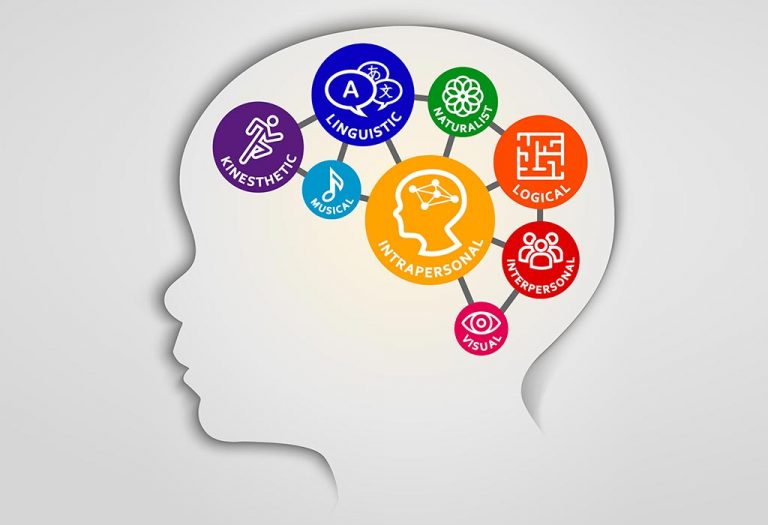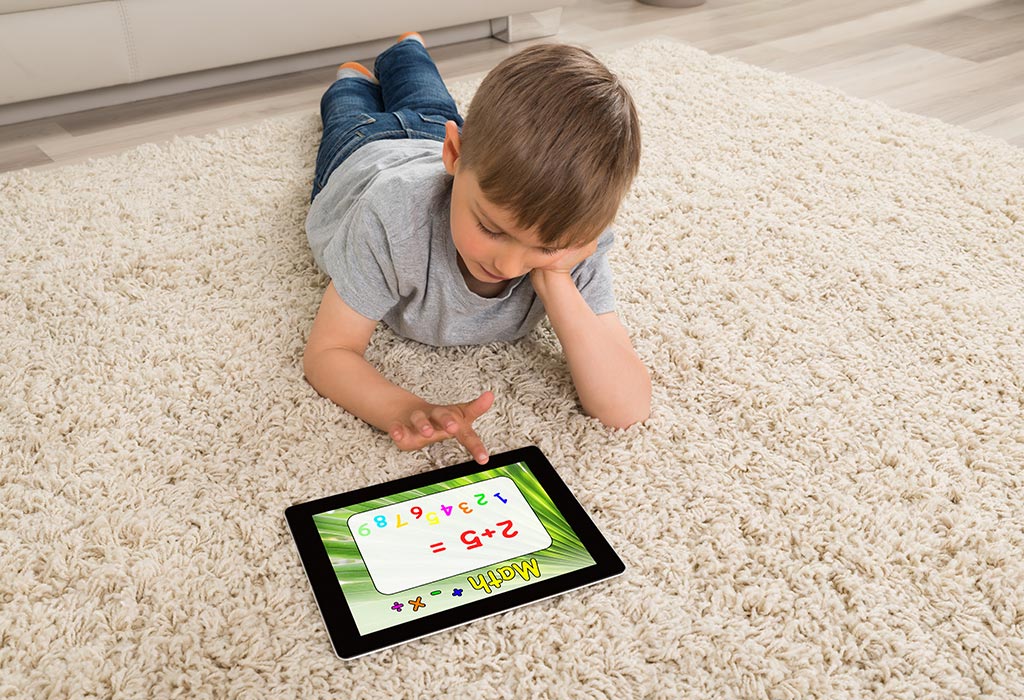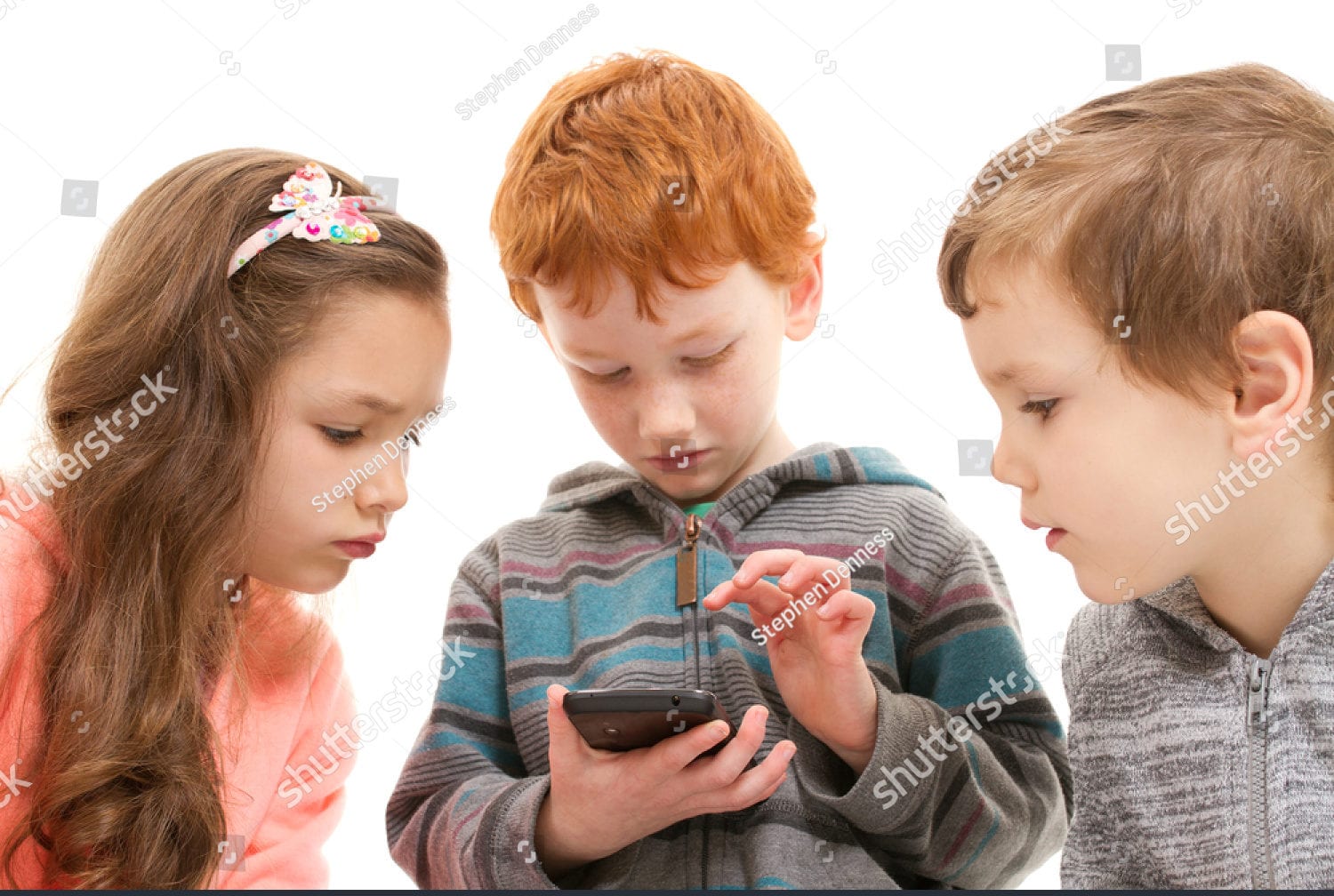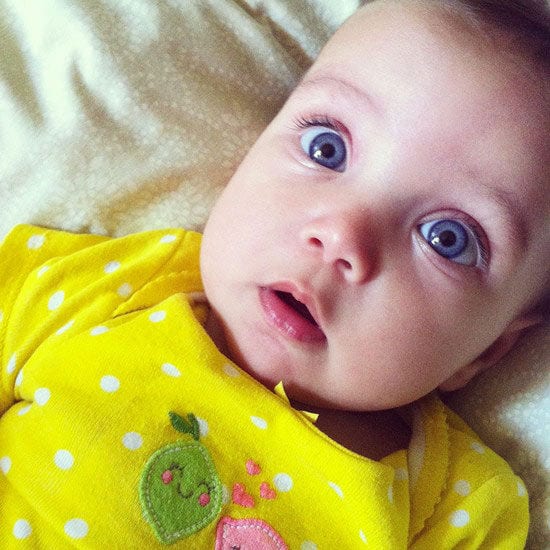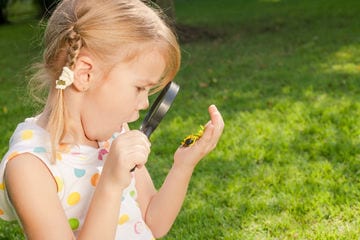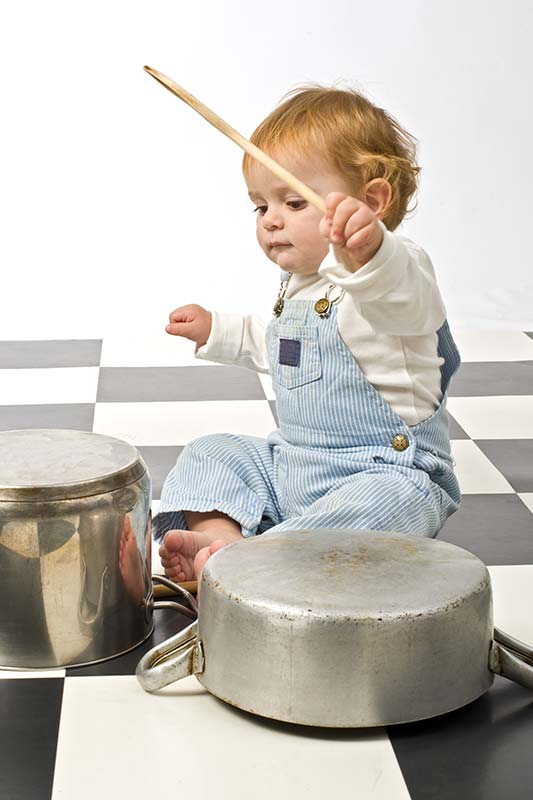Signs that indicate that Your child is smart Exceptionally. All parents believe their children are exceptionally intelligent, but some children are not necessarily exceptional. Exceptional intelligence in a child usually appears at an early age.
Traditionally, society has been led to believe that academic performance is the only criterion that determines a child's potential. Like millions of parents out there, you probably want your child to be a well-rounded scientist when they grow up; acquisition Science, math, and engineering are the ultimate dream of every parent. But before they start school and embark on this endless race for academic success, there's one thing you should know and want most—for your child to be smart despite their grades and physical fitness.
There are other types of “intelligence” – in fact, theories have identified them in eight curves in practical life, in fact, and your child could have one (or more) of those eight! TheseIntelligence is a strong inherited trait. Which is a good thing, of course! It's important to look for signs that indicate your child's intelligence at an early age, because when you start looking for and developing these traits at an early age, you'll recognize your child's natural potential, and you'll realize that this excellence will certainly go far beyond their math and physics scores. This reading is about discovering your child's dominant "intelligence," and we're not kidding; there's a theory to prove it all!
First signs that your child is very intelligent
The American website "Power of Positivity" stated that children can show early signs of being highly intelligent, and you will not realize this feature in your child unless you compare him to others of the same age, or if a pediatrician notices it.
The first signs that indicate your child's exceptional intelligence are:
● Be alert when he is an infant.
● Has a long attention span for a toddler or infant.
● Developing language skills.
● Developing motor skills.
● Proficient in writing with both hands at an early age.
● He has imaginary friends that he plays with.
● He says his first words at an early age.
● He learns to read at an early age and can read easily before the age of four.
● He begins to show a sense of humor at a very early age.
Theory of Multiple Intelligences
Proposed by Dr. Howard Gardner, a professor of education at Harvard University in 1983, this theory identifies the different types of intelligence. Dr. Gardner suggests that mapping a child's intelligence through IQ alone is limited. While academic performance is important, equal importance should be given to a child's inclinations toward other areas, such as art, architecture, music, nature, design, dance, therapy, entrepreneurship, etc. This theory rejects the traditional way of attributing intelligence to one's own self. It highlights other aspects that must be considered when calculating a child's potential. Hence, we would like to introduce you to the Theory of Multiple Intelligences, which proves that your child could possess one or more of these eight types of intelligence!
Eight types of intelligence
Believing in Dr. Gardner's theory and following in his footsteps, educators around the world have begun incorporating the theory of multiple intelligences into their educational systems. Wondering about these '8 Intelligence Traits' and how to know your child's type? Read on!
1. Body Smart (Bodily-Kinesthetic Intelligence)
Children who have bodily-kinesthetic intelligence generally do well at sports and other physical activities.
Moves around a lot, and has well-coordinated body movements. If your child is naturally inclined towards physical play and can effectively use his muscles to control his body movements, then by default, he falls under this intelligence category. Observe his traits closely to get a better idea. Is he overly excitable? Is he always on his toes? Is it impossible for him to sit in one place for long hours? Small details like these will tell you that your child possesses traits of bodily-kinesthetic intelligence. Virat Kohli is a prime example of someone who possesses high kinesthetic intelligence.
2. Smart Image (Spatial Intelligence)
Picture intelligence, also known as spatial intelligence, refers to how well your child can visualize objects, places, or even dreams. Spatially gifted children possess a deep knowledge of art, crafts, patterns, and dimensions and have strong visual memories. They tend to express their thoughts and actions artistically on a daily basis. For example, if your child pays attention to detail and is able to recall small aspects of daily activities, then they have high spatial intelligence and, therefore, picture intelligence. Children who possess this knowledge go on to become artists, architects, or masters in similar fields. They can easily sketch out their ideas. Leonardo da Vinci fits perfectly into this space.
3. Intelligent logic (logical-mathematical intelligence)
Logical intelligence refers to the ability to handle numbers and reason effectively. Mathematical intelligence and problem-solving skills are an important part of intelligent reasoning. If your child is committed, can think of a box, reason well, recall memories and interpret them in sequence, and then take the hint—then they are intelligent reasoners.
Children gifted with this intelligence are curious and often ask a lot of questions. Crunching numbers and graphing are a piece of cake for them. The most successful mathematicians and scientists fall into this category. Einstein undoubtedly possessed a high logical and mathematical intelligence.
4. Smart Music
Enjoying music doesn't even come close to being musically intelligent! Those children who have a strong inclination toward composing music, singing, and creating rhythm are naturally musically intelligent.
They have a better understanding of melody and pitch. If your child has a beautiful voice, can pick up rhythm, can differentiate between different types of instruments, and is inclined toward learning a musical instrument, then they are undoubtedly musically intelligent. It's important to understand that musical intelligence is a broad concept, and not all children possess all of the above traits.
5. Smart words (linguistic intelligence)
Also known as linguistic intelligence, word-smart children are generally good with language. If your child's handwriting is naturally flawless, they enjoy reading, and understand grammar rules,
They can spell long words with ease; so they are word smart. Word smart children enjoy word games like scrabble, crossword puzzles and word jumbles. They are excellent communicators. Basically good with words. They have a rich vocabulary and tend to remember new words. The art of storytelling is a gift they possess. Gulzar is a famous personality in this category.
6. The intelligent soul
Intrapersonal intelligence should not be confused with selfishness, self-centeredness, or introversion! It refers to a person's ability to enjoy their own company. If your child can be alone without feeling bored or afraid, they are intrapersonally intelligent. Possessing this intelligence comes with skills such as responsibility, self-awareness, and independence.
Smart people are fully aware of their strengths and limitations. If your child is confident enough to do what's right, despite being told otherwise, they belong in this group. Those with strong intrapersonal intelligence are confident in what they do. They listen to everything but do what feels right to them—the perfect trait for an entrepreneur. Bill Gates is a great example!
7. Smart mixing (personal intelligence)
People types are smart kids who are adept at interacting with others. They're the "happy go lucky" type. They have a million friends and genuinely enjoy being a part of it! If your child enjoys spending time with their friends and loves being around people, they have strong interpersonal intelligence. They understand how to handle different situations. They seem calm and comfortable around other people. They are empathetic, compassionate, and kind friends. Who better to fit this group than Oprah Winfrey!
8. Intelligent Nature (Nature Observation)
If your child is naturally interested in gardening, feeding animals and birds, owning a pet, and observing plants and trees, then he or she is a naturalist. Those who belong to this group are nature observers and lovers. They are keen when it comes to learning about all things natural, including mountains and aquatic animals. They also tend towards preserving nature's wealth. They enjoy watching nature in green parks, sitting by the river, gazing at the clouds, and anything that keeps them away from the concrete jungle. Salem Ali is a perfect example of a personality that belongs to this group!
10 Signs Your Child Is Exceptionally Smart
The site shows the ten signs you should look for if you think your child is a genius.
1. Learns to read at an early age
If your child is exceptionally intelligent, there's a good chance they'll learn to read at an early age. This group learns to read by the age of three, whether they receive lessons or not. Their ability to read is due to their strong memory, which helps them retain many words they see in books or hear you read.
Learning to read at an early age is often a significant indicator that your child is a genius, and they will have a voracious appetite for reading, so much so that you may need to interrupt their reading to eat or go to bed. But finding age-appropriate books can be difficult.
Therefore, you can choose some age-appropriate classics that are often overlooked in schools, but which provide a rich source of learning for your child. Among the classic books you can choose for your exceptionally intelligent child, who may enjoy them based on their age and abilities, are:
● Peter Pan
● The Adventures of Robin Hood
● Treasure Island
● Swiss Family Robinson
2. He is creative when playing alone.
Exceptionally intelligent children have a unique imagination, especially when playing alone, as they often create an imaginary friend. Although this is common among all children, gifted children are exceptionally creative.
In other words, gifted children are able to create small worlds based on what they read or watch. Studies have found that children who have an imaginary friend exhibit high creative abilities.
3. A highly intelligent child is curious.
Gifted children are curious about everything around them, have inquisitive minds, and tend to question everything. This is why you may feel overwhelmed by their questions, especially when they go beyond your own knowledge.
You can take this opportunity to open books on topics that interest them most, and show them how to search for answers on safe websites, such as National Geographic Kids magazine.
4. Perseverance
When exceptionally intelligent children find a topic, they become interested in it, seek to learn everything about it, and continue to ask questions, read, and talk about it. In other words, they are persistent in solving problems and committed to finding answers. They also have a tremendous amount of energy and dedication to solving these topics.
5. Creative
Your exceptionally intelligent child may be highly creative. Studies show that creative people are able to discover new ways to solve problems, while intelligent people solve problems more logically. Scientists don't understand the relationship between intelligence and creativity, but creativity appears to be a common trait in particularly intelligent children. Exceptionally intelligent children may exhibit these artistic qualities:
● Independent in their thoughts
● They create creative stories that are sometimes based on real or unreal events.
● They find many creative solutions.
● They have a broad imagination.
● They are good at improvisation.
● They are not bothered by the fact that they are different.
● They may be distracted by their thoughts.
● They have their own schedule.
● They may take risks in some areas.
● They daydream about their thoughts.
6. They have a strong memory.
Your gifted child has an incredible memory, whether for facts or numbers. Some gifted children memorize phone numbers or license plate numbers just for fun, and they can often memorize math equations and the letters of words after seeing them just once.
7. An intelligent child may be very sensitive.
Gifted children may be highly sensitive, meaning they are acutely aware of their own and others' feelings. Exceptionally intelligent children are also sensitive to touch, which is why they may dislike rough clothing, layered socks, or chairs that are either too hard or too soft.
This trait can be challenging for parents, but it is part of your child's identity.
8. They have a strong will.
Don't be surprised if your exceptionally intelligent child has an emotional meltdown, as intelligent children get frustrated easily when they have to stop doing something they love, or if they feel like you're not listening to them.
9. They have a sense of humor.
Gifted children are funny and tell jokes all the time, in addition to constantly talking and asking questions. These “comedians” can take on the role of “class clown,” and teachers find them entertaining.
10. They may seem rude.
Smart children appear older than their age because they have a vast vocabulary and love interacting with adults. However, they are sometimes perceived as rude or bold when they correct an adult's mistake or ask them personal questions.
They are often seen as rude, but are usually seen as curious or funny, because of their ability to think abstractly, and adults treat them as if they were older.
Gifted children remain children, and may lack emotional development.
Thoughts on Raising an Exceptionally Smart Child
If you're the parent of a highly intelligent child, you'll have a hard time keeping them sharp with good books and activities. So, try taking them to museums, parks, and historical sites, take them for walks in the woods, and offer them lots of different experiences to enhance their learning experience.
You should also guide your child in social situations and remind him to be polite even if he is curious, but do not always tell him how smart he is. Teach him to think about others, share what he has, and be willing to help.
Now that you know the types of intelligence, go ahead and discover which one (or more) of these apply most strongly to your child. Observe what your child naturally does well, and look for Ways to help him improve at thisWe appreciate and encourage his talents at an early age, so he doesn't have to worry about his future!
